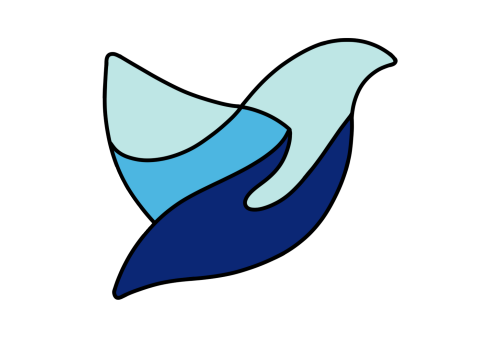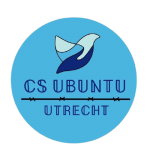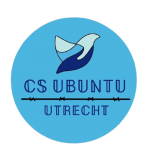Venezuelan Refugees in Curaçao: The Role of the Netherlands
Political and economic instability within Venezuela has created a large number of refugees, many of whom flee to countries in the region. One of these countries is Curaçao, a little island located within the Caribbean.
However, several human rights organizations report on bad and degrading asylum procedures, in which the rights of the migrants are systematically violated. Within these reports not only the government of Curaçao is called to account. The Dutch government is also designated as responsible for this.
Since 2014, the number of Venezuelans applying for refugee-status has increased unimaginably, by as much as 8000%. As it stands, more than one-sixth of the population has left the country since 2015. Problems, amongst which hyperinflation, a lack of functional infrastructure, electricity and clean water, have made the situation in Venezuela unbearable for many.
The Venezuelan Observatory of Finance has published reports making the massive inflation tangible through the so-called ‘Café con Leche Index’: the price of a cup of coffee has increased massively within a year. In August 2021, the price of a coffee with milk was 7.8 million bolivares (approx. 15 euros). By comparison, the average worker in the public sector makes approximately 4,50 euros per month.
The ongoing covid-crisis has exacerbated many of the problems, putting more pressure on multiple sectors both inside Venezuela, and in the countries receiving the Venezuelan refugees. One of the countries receiving refugees is Curaçao.
Because Curaçao lacked a proper asylum procedure when it became an autonomous country within the Kingdom of the Netherlands in 2010, the UNHCR eventually took over these tasks. Until 5 July 2017, asylum-seekers could register at the Red Cross on the island that in turn forwarded these application forms to the UNHCR, whereafter a UNHCR-team evaluated on individual basis whether refugee status was given or not. However, in July 2017 the Curaçaoan authorities stated that they would take over UNHCR’s responsibility for registering asylum seekers and issuing asylum-seeker certificates. As there was no transition period foreseen by Curaçaoan authorities, the government became responsible for asylum procedures from one day to another.
Between 2017 and 2018, consequently, while hundreds of Venezuelans have requested an asylum-interview, not a single asylum-seeker certificate has been issued by the Curaçaoan government. Moreover, many migrants did not even have a chance to apply for asylum in the first place. Since Venezuelans are not registered and no real opportunities exist for the ones who are seeking international protection in Curaçao, they are forced into irregularity. Further, due to the amount of Venezuelans on the Carribean Island, the Curaçaoan government has called many of them ‘economic migrants’, and has started to actively deport people back to their country of origin.
Curaçao is not bound by the 1951 Refugee Convention. However, as a constituent country of The Netherlands, the country is bound by the European Convention of Human Rights (ECHR), which prevents the refoulement of asylum-seekers when facing torture or inhumane treatment. The Netherlands, therefore, are answerable for any deportations of Venezualan refugees.
Thus, Curaçaoan authorities have deported Venezuelan asylum seekers. One man reports how guards “damaged us psychologically to make sure we left the island”, by making them, amongst other things, strip naked and jump like frogs, and shooting at them with rubber bullets. Besides, Curaçao is one of the places where Human Rights Watch has documented the worst abuses suffered by Venezuelans. For example, Human Rights Watch received information about Curaçaoan authorities sweeping up asylum seekers in immigration raids, verbally and physically harassing them, and detaining others indefinitely in inhumane conditions and without access to lawyers. Further, while Venezuelan children are legally allowed to go to school in Curaçao, they face practical barriers for enrollment and fear going to school because of raids by the government at schools.
Although human rights abuses have been documented and publicly reported by NGOs from 2017 and on, the situation of Venezuelans who fled to Curaçao has not improved at all.
Before going through with the rest of the story, a little interception is required:
In order to understand how the Kingdom of the Netherlands can be held responsible for this, it is important to shed light on the governance structures in place.
Curaçao is an independent country within the Kingdom of the Netherlands, just like some other islands within the Caribbean. Each independent country has its own government with its own governor, who is the head of government. This governor is appointed by the King and represents the King within the local government.
The independent governments can and must for the most part design and determine their own policy areas. However, some policy areas remain mostly determined by the Kingdom of the Netherlands, namely: foreign relations and defense. Agreements are made with the local governments about this, which must be observed. As soon as the agreements have been made, the countries must be implementing the policy themselves.
The Kingdom of the Netherlands can intervene if one of their countries overseas fails to comply with international rules or violates human rights in the implementation of its migration policy. In addition, the Dutch government must
provide assistance in the event of emergencies; this also includes issuing refugee and foreigner passports.
This did not happen. On the contrary, the Netherlands has systematically financed the human-rights-violating defense policy of Curaçao. Moreover, this cooperation has been further strengthened. Additional support has been provided in the search, detention and deportation of the refugees, according to Amnesty International. The Netherlands also provides the Coastguard on Curacao with equipment and personnel, with which refugees are intercepted illegally at sea.
Erika Guevara-Rosas, America’s director at Amnesty International, has stated that it is “unacceptable that the Kingdom of the Netherlands has supported the Curaçaoan authorities in detaining and deporting people who fled Venezuela in search of safety”. The Dutch government, so Guevara-Rosas and others argue, must ensure that Venezuelans receive the international protection they need.
The Dutch government, however, consistently turns a blind eye to the human rights violations committed. When asked to take responsibility for the state of affairs in Curacao, the Dutch government maintains that they have no obligation to do so, for migration policy, and thus possible violations, are Curacao’s own responsibility.
Fortunately, calls for change are getting louder. Human Rights Watch and Amnesty International, amongst other organizations, have made their demands clear. Furthermore, news outlets throughout the country are recently reporting consistently on the situation, and more specifically on the role of the Netherlands in the human rights violations.
For more information on the situation, and on how you can help, see our resource bank!



